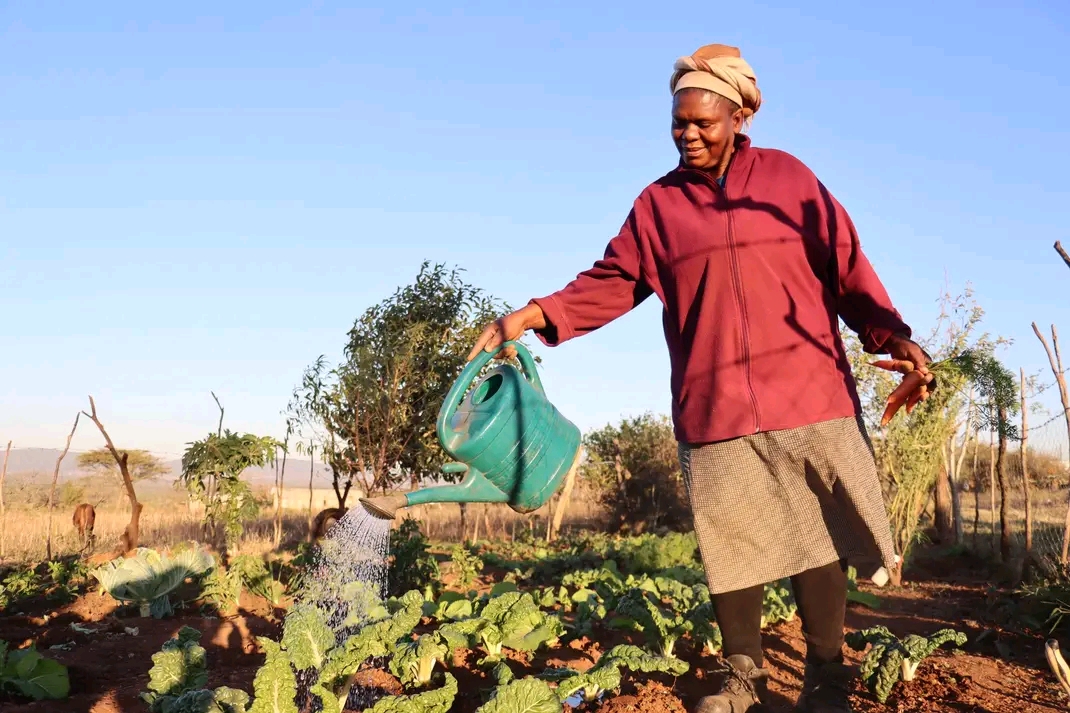
by Ncaba Ntshakala
World Vision Eswatini (WVE) has achieved a major milestone, securing E341 million (US$18.102 million) in funding for the financial year ending September 30, 2024. This marks an increase from the E312 million (US$16.494 million) reported in the previous year, according to WVE’s latest annual report.
The funding boost was primarily attributed to additional grants from local donors and Gifts in Kind (GIK) income, which included a significant rice donation from Taiwan.
In the 2024 financial year, WVE operated in 29 of Eswatini’s 57 constituencies through 15 Area Programmes (APs) and 14 constituencies with grant-funded projects. During this period, WVE impacted over 339,058 individuals, with 180,843 directly benefiting from programme interventions.
Among the direct beneficiaries were 149,256 children, 582 Community Healthcare Workers, 22,960 adolescents, and 31,120 caregivers.
Since 2020, WVE has reached 390,843 direct beneficiaries, achieving 96% of its five-year strategy target. This includes support under Water, Sanitation, and Hygiene (WASH); Livelihoods; Health, HIV, and Nutrition; and the Community Engagement and Sponsorship Plan (CESP) technical programmes. The CESP initiative also integrates Child Protection and Participation, Safeguarding, and Faith and Development programmes.
In FY24, WVE successfully met 90% of its performance targets, with varying results across grants and technical programmes implemented in different APs and clusters.
Notably, the organization oversaw the transitioning and handover of three long-standing APs—Lubulini, Shewula, and Mkhiweni—which had completed their 15-year lifespans.
Strategic Leadership and Challenges
WVE National Director Tinah Mukunda expressed pride in the organization’s resilience and achievements amid global challenges. Mukunda acknowledged the difficulties posed by rising costs, escalating conflicts, climate change, and the lingering impacts of the COVID-19 pandemic.
These factors, she noted, have necessitated strategic adjustments in programme delivery, which WVE has tackled with determination and innovation.
Mukunda highlighted WVE’s commitment to delivering projects on time, within budget, and in line with set targets.
RELATED: EmaSwati save E17.8 million through World Vision
She stressed the importance of sharing impactful stories of WVE’s work to sustain donor confidence and ensure the longevity of development initiatives that benefit children, families, and communities.
The report revealed that WVE has expanded its focus to include urban areas, addressing emerging vulnerabilities such as poverty, gender-based violence, climate change impacts, and inadequate sanitation.
Mukunda described this shift as a learning opportunity and emphasized the integration of Climate Change, Gender Equity, Disability, and Social Inclusion (GEDSI) into technical programmes as a key priority.
Mukunda attributed WVE’s success to divine guidance, donor support, and the dedication of its staff. She expressed gratitude to local and international donors, the Government of Eswatini, and the WVE Board of Directors for their unwavering support, which has enabled the organization to pursue ambitious goals and remain strategically positioned for sustainability.
Governance and Operational Success
WVE Board Chairperson Siceliwe Mngometulu celebrated the organization’s transformative impact on 180,843 emaSwati in FY24. This group included 149,256 children, 22,960 adolescents, 31,120 caregivers, and 582 Community Healthcare Workers.
Mngometulu emphasized that these achievements reflect lives transformed through advocacy and technical programmes across 29 constituencies, with notable initiatives in Mkhiweni Inkhundla and the Lubombo Region.

Mngometulu highlighted the Esicojeni Foundation’s significant role in supporting WVE’s programmes. Community visits revealed the tangible outcomes of these initiatives, with children and stakeholders sharing positive feedback on their impact.
She also commended WVE’s leadership and staff for maintaining high-performance levels despite global funding challenges.
A key highlight of the year was a clean financial audit conducted by Sizwe Ntsaluba Grant Thornton, which confirmed the effective utilization of donor resources. Mngometulu praised this accomplishment as a testament to WVE’s transparency and efficiency in resource management.
The procurement of a new national office in Mbabane was another major achievement, enhancing WVE’s operational capacity. Mngometulu welcomed new Board members Pastor Sibusiso Nhleko, Nqaba Sicelo Dlamini, and Nosimilo Simelane, applauding their swift adaptation and valuable contributions to governance.
Looking ahead, Mngometulu expressed optimism about the upcoming financial year and reaffirmed the Board’s commitment to guiding WVE toward its mission of ensuring every child in Eswatini enjoys life in all its fullness.
Transformative Water Access Project
World Vision Eswatini has unveiled plans for a transformative project valued at over E250 million, aimed at achieving universal water coverage across 15 Area Programmes.
RELATED:World Vision to invest E125 million towards universal water coverage in 15 areas
Outlined in WVE’s FY24 report, this ambitious initiative demonstrates the organization’s dedication to ensuring safe drinking water, sanitation, and hygiene (WASH) services for communities.
WVE has committed over E125 million directly to the project while advocating for a co-financing partnership with the government to fully realize its vision.
Collaboration with stakeholders remains critical to the project’s success, addressing the urgent need for clean water and improved sanitation nationwide.
The WASH programme recorded a 103% performance rate toward its set targets in FY24, an improvement from 91% in FY23. Beyond infrastructure, WVE’s interventions focus on safeguarding the health and well-being of vulnerable populations, particularly children and mothers.
These efforts include strategies to prevent infections, improve maternal and child health outcomes, and enhance community resilience.
By prioritizing children aged 0–6 years and their mothers, WVE ensures access to essential health and nutrition services, contributing to long-term community well-being and reducing preventable diseases.






